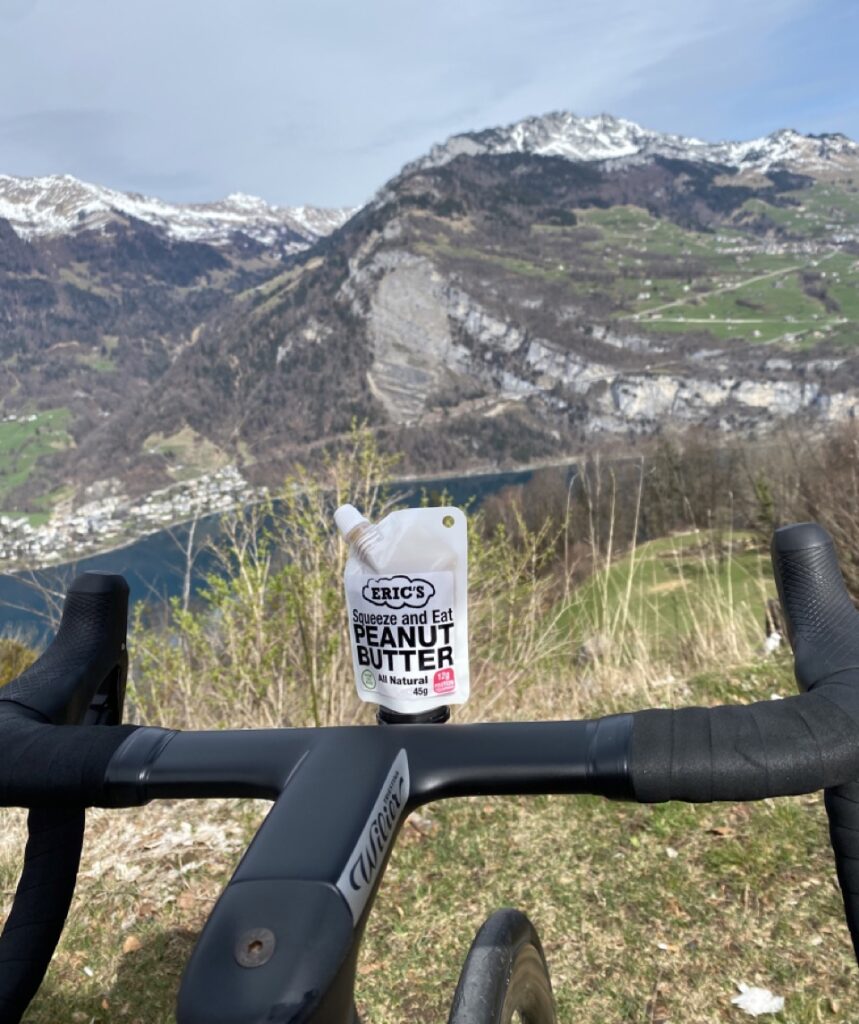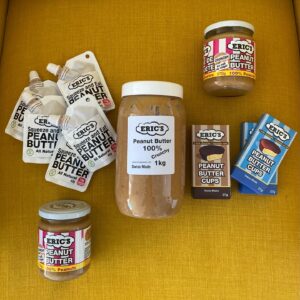Peanut butter: the rocket pocket of sport nutrition
 Sometimes one must fight the bad with the worst; there is no other alternative. It was the case with that awful time we experienced with Covid. During the locked down, most people started filling their boredom by creating new activities such as gardening and playing music. But, mostly, they turned their attention toward home training and cooking. Suddenly, people had more time to improve the quality of their diet and activities, driving awareness to a healthier lifestyle.
Sometimes one must fight the bad with the worst; there is no other alternative. It was the case with that awful time we experienced with Covid. During the locked down, most people started filling their boredom by creating new activities such as gardening and playing music. But, mostly, they turned their attention toward home training and cooking. Suddenly, people had more time to improve the quality of their diet and activities, driving awareness to a healthier lifestyle.
This increased time spent learning more about sport and nutrition and the healthcare system shifting massively from a reactive to a preventive attitude led to a new interest in everything labeled as healthy. However, this came with a cost: the sparkling ads and colorful voiceovers for superfoods and supplements started popping up everywhere, hurting wallets more than improving body composition. Evidence also shows that most supplements harm one’s body more than improve performance. Don’t get me wrong; a handful of supplements can maximize one’s athletic performance – but not more.
Even if superfood is a definition that doesn’t exist per se, some ingredients shine more than others for their nutritional value. One has been out there forever, mainly as the cornerstone of any healthy breakfast (cit.): Peanut Butter.
Food with a mascot
The main peanut butter ingredient is peanuts with a famous mascot: Mr. Peanut or his full name Bartholomew-Richard Fitzgerald-Smythe. According to Wikipedia, Mr. Peanut’s main jobs are being a mascot, gentleman, and hero.
On a less anecdotal note, peanut butter is an excellent product because of its nutritional benefits for human health and its strong support for performance and training.
Five factors that make peanut butter healthy
Peanut butter has five main factors that make it beneficial for healthy nutrition:
- Healthy fats: peanut butter’s monounsaturated and polyunsaturated fats greatly sustain a healthy heart. The ratio between monounsaturated and polyunsaturated is similar to olive oil, a well-known healthy heart contributor.
- Phosphorus: this element is abundant in peanut butter and helps the human body build healthy cells and bones, aside from assisting cells to produce energy.
- Zinc: 100g of peanut butter contains 3.06mg (milligram) of zinc. Therefore, a serving of peanut butter consists of about 8% for men and 11% for women of their RDA (Daily Recommended Allowance). Zinc is necessary for immunity, protein synthesis, and DNA formation.
- Niacin: Peanut butter is an excellent source of Niacin. It benefits digestion and nerve function and helps produce energy.
- Vitamin B-6: A key player in over 100 enzyme reactions in the body and may be necessary for heart and immune system health. Peanut Butter is full of Vitamin B-6.
Three factors that make peanut butter perfect for training and recovery
How does peanut butter improve your performance and recovery? We have three main reasons for it:
- Proteins: 100g of peanut butter contains 25g of protein. 25g of protein is a target amount for your recovery after any effort.
- Magnesium: Magnesium is essential for health, as it plays a role in over 300 chemicals in-body processes. 154mg (milligram) of magnesium per 100g peanut butter gives you a solid bang for your buck.
- Calcium: muscle work, blood clotting, the excitability of nerves and muscles control, heart rhythm, bone formation, and many other metabolic processes in cells are positively affected by calcium.
In a nutshell (pun intended), Peanut butter provides a good amount of fiber, proteins, and essential vitamins and minerals, such as magnesium, calcium, potassium, and zinc—all elements of a solid foundation to remain healthy and train efficiently day after day.
Peanut butter from a nutritionist perspective
As a nutritionist, I like to use peanut butter on different occasions:
- For managing blood sugar levels: Peanut butter is a relatively low-carbohydrate food that contains good fats, protein, and essential fibers. Because of these qualities, peanut butter (without added sugar) doesn’t significantly affect blood sugar levels. Thus, people with diabetes may find it a good choice as a nutritious food.
- As a means to increase daily unsaturated fat intake, which is anti-inflammatory, stabilizes heart rhythms, and improves cholesterol levels
Peanut butter in everyday diet
Is there any tip for squeezing peanut butter into anybody’s diet? Well, that’s why you are here, aren’t you?
Eating peanut butter is easy. And as it is delicious, one can easily overeat it, so be mindful of your intake to avoid eating more calories than you need daily. Remember that two tablespoons of peanut butter are close to 200 calories.
You can include peanut butter in any diet by:
- Making a classic peanut butter and jelly sandwich. Use whole-fruit, low-sugar jelly, and whole-grain bread.
- Spreading peanut butter on rice cakes and topping with banana slices. It is perfect before or during a long training session.
- Whipping up a Thai peanut salad dressing, using lime juice, rice vinegar, soy sauce, and honey.
- Adding a spoonful to your recovery smoothies.
- Dipping apple and pear slices into peanut butter for an easy snack.
- Stirring peanut butter into yogurts or warm oatmeal.
Peanut butter in my diet
For me, peanut butter is an ideal ingredient for any breakfast because:
- It stabilizes one’s blood sugar levels.
- One digests it slowly; thus, it remains in one’s stomach longer, which helps one feel full and satiated, allowing one to go longer between meals.
- A spoonful of crunchy peanut butter requires more chewing. This action sends satiety signals, which may help to avoid overeating.
- It will boost the protein value of one’s breakfast, and muscles will love it.
To summarize, if you are looking for food that has the potential to upgrade your diet, give peanut butter a chance because it brings a lot to the table:
- It is full of fiber, essential minerals, and vitamins.
- It contains a significant amount of protein.
- It possesses healthy fats.
- It stabilizes one’s blood sugar levels and heart rhythm.
- It is fantastic to boost your breakfast or midday snack.
Eric’s peanut butter is my personal favorite.
So, peanut butter is good and healthy, but is there any peanut butter I prefer amongst the others? Yes, there is one. It is called Eric’s. And I like it because Eric and I have the same idea about it:
- We both love peanut butter.
- It has to be fresh.
- It has to taste good.
- It has to be made only with natural ingredients

Eric’s Peanut Butter is made with dry roasted non-GMO peanuts and does not use palm oil, preservatives, or hydrogenated oils.
Lastly, Eric produces his peanut butter in small quantities (on demand) to ensure the best possible taste and impeccable quality. And all of it is pure Swiss.
If you like what you just read and want to give it a try – use the coupon nutriperformx to get a 10% discount!





